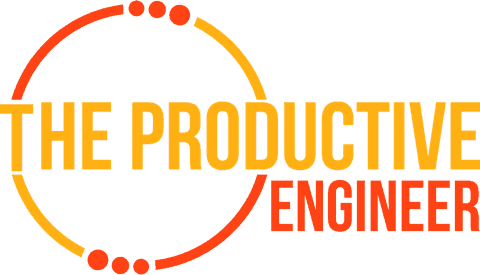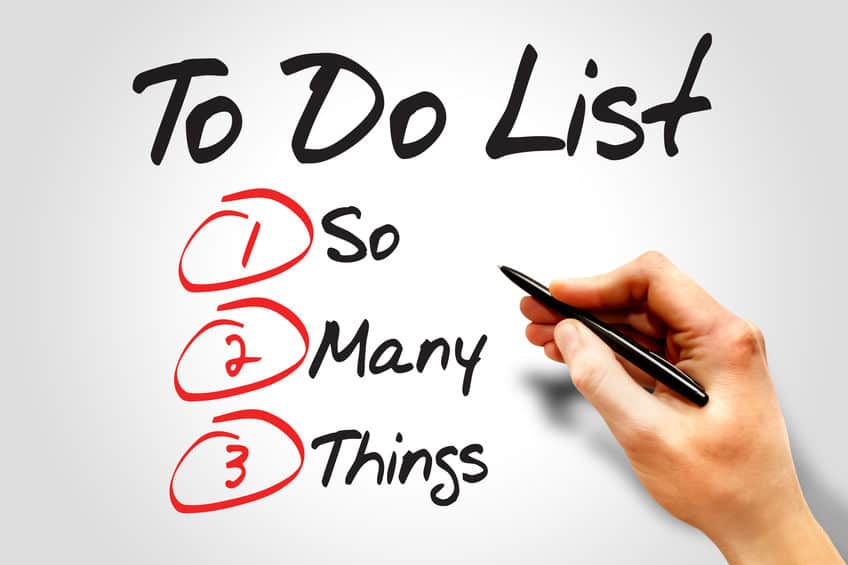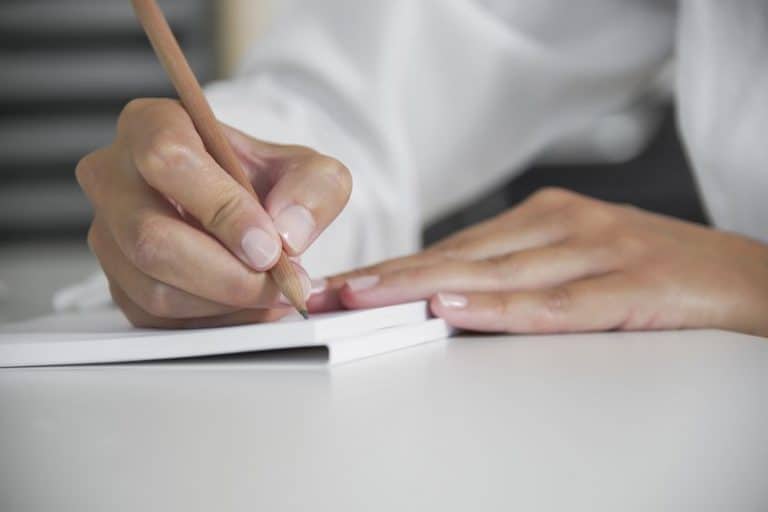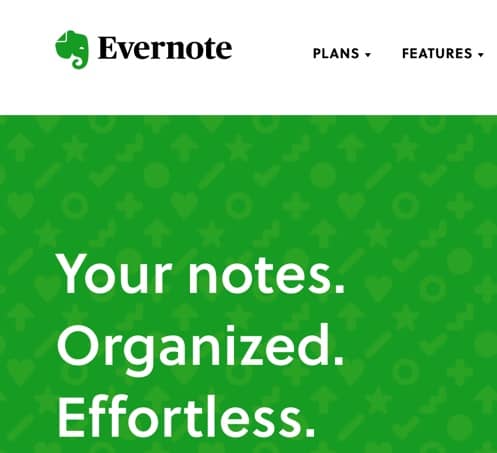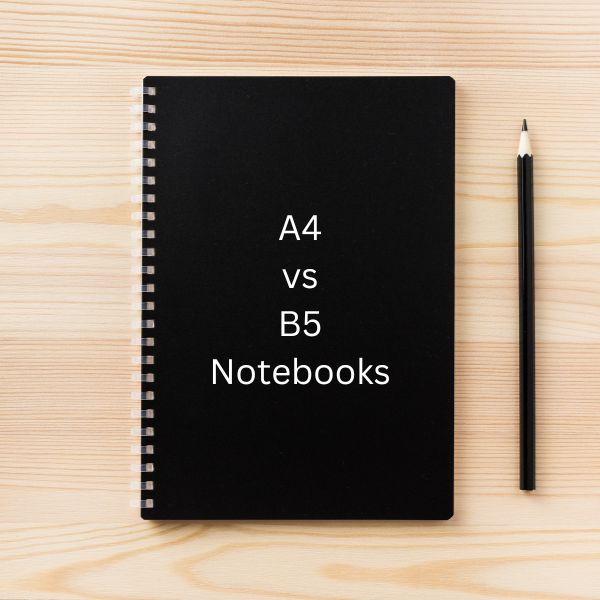Hardest or Easiest Work First? What the Research Shows
Hardest or easiest work first? It’s one of the largest questions in productivity management, and one that has been under debate or decades.
There are two patterns of thought on this topic. Some productivity experts believe that by starting on your quickest, simplest tasks first, you build momentum that carries you through to the harder tasks. However, other experts believe that completing your hardest tasks first is the key to getting things done more efficiently. Research shows that people who execute their most difficult tasks first are generally more productive and high achieving than those who start easy and work their way up.
| Reasons why doing hard work first is better for productivity |
| The stress of putting off a difficult task negatively affects productivity towards all other tasks performed. People make the choice to complete easier tasks first not on the logical basis of what methodology is more productive, but on what method makes them feel better. Smaller tasks are generally easier to defer, delegate, or avoid entirely than large tasks if time or motivation runs low. People have a limited amount of energy in any given week to produce or perform. It is more productive to consider whether you need to perform small tasks at all rather than do them first. People performing small tasks tend to multitask, and multitasking is not productive–it only feels productive. Completing smaller tasks first is constructive procrastination, and destroys productivity. Doing the hardest task first means you are more likely to complete it. Willpower has a ceiling and doesn’t last. |
| Getting the hardest task out of the way allows you to coast and creates a positive mood, which increases productivity. |
Since productivity is a cornerstone of successful business, there have been many studies performed to analyze what methodologies make people most productive. Read on to find out what their research revealed.
If you are looking for the best study tools out there, you should read our article on the best study tools to enhance your studying at the link below:
The Ultimate Study Tools You Must Use to Succeed!
Why Is Doing the Easy Thing First Is Less Productive
Completing the easiest items first is less productive. This idea is reinforced by behavioral research that shows that starting with easier tasks first is not helpful overall.
The data shows this is the case even though it can initially feel good to take the path of least resistance in an attempt to get the ball rolling. The human brain is wired to feel positive about short-term rewards, so we are more inclined to take actions that result in gaining those short-term rewards.
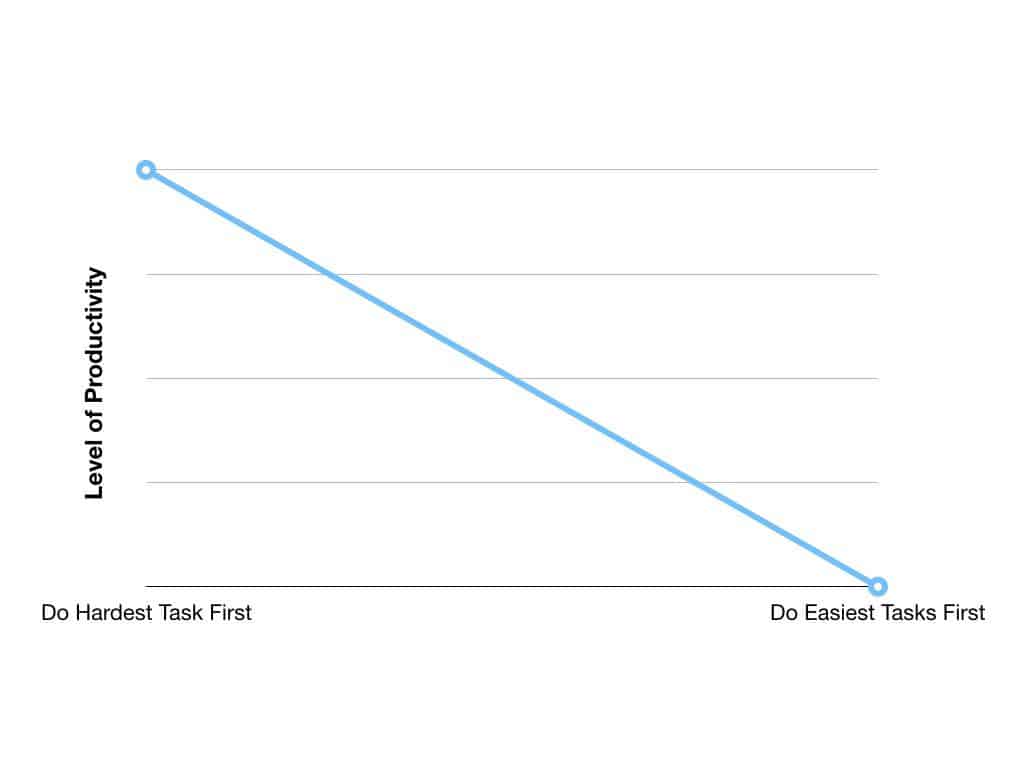
These are the basic reasons found by behavioral research that doing easier things before hard things in a productivity workflow is counterproductive:
- The stress of putting off a difficult task negatively affects productivity towards all other tasks performed.

Scientific studies have shown that the dread of having to execute a major task requires a large amount of subconscious focus.
The weight of having a major task on your mind can make you lose focus on the task at hand. This loss of focus makes the task take longer to complete. It can also lead to the task completing less effectively.
- People make the choice to complete easier tasks first not on the logical basis of what methodology is more productive, but on what method makes them feel better.
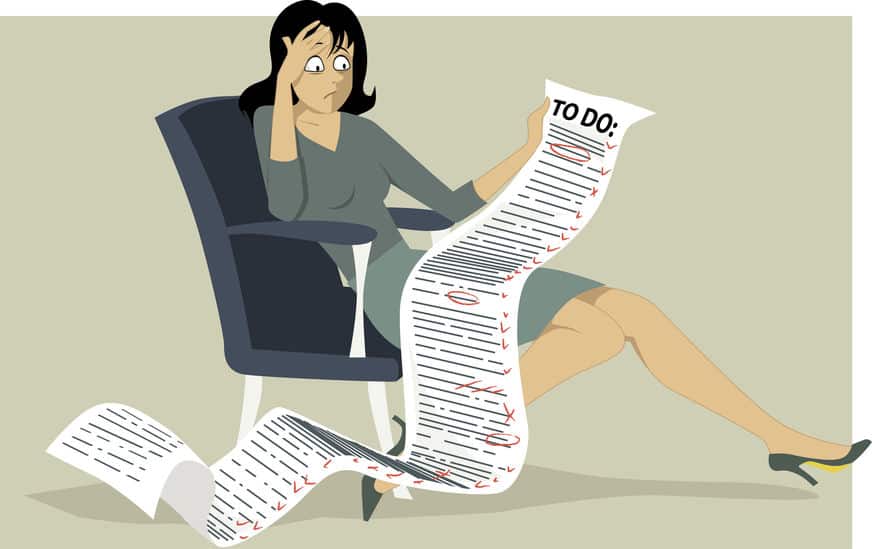
The choice to do easier tasks first is rarely made with productivity in mind.
Rather, people choose this workflow method because it elicits positive emotions that produce a short-term psychological high, not because it works better.
- Humans have a psychological tendency to enjoy experiences that improve over time.

When you start an easy task and start building up to harder and harder tasks, this can create negative psychological feedback.
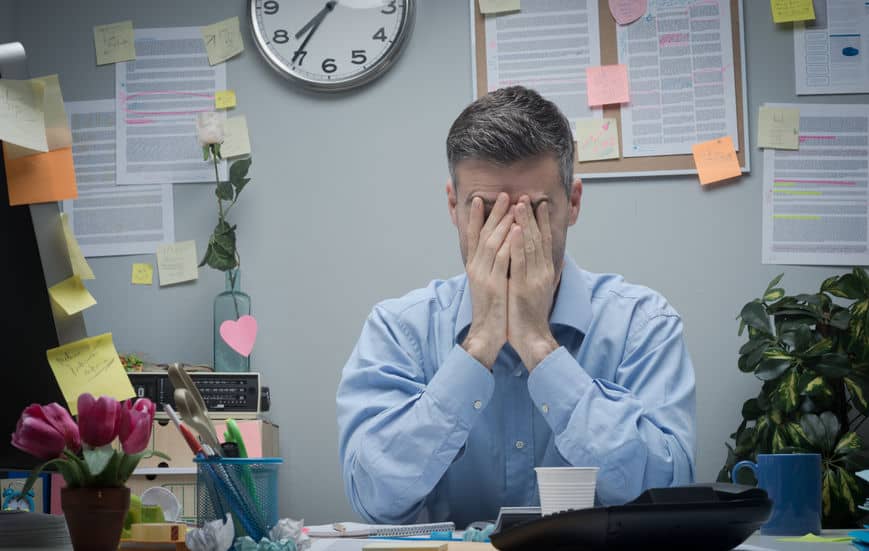
Rather than building momentum, this process psychologically feels akin to pushing a boulder that gets heavier and heavier the further you push it. The increasing difficulty of subsequent tasks is an exhausting process, not an empowering one and has a poor effect on overall productivity.
- Smaller tasks are generally easier to defer, delegate, or avoid entirely than large tasks if time or motivation runs low.
Difficult tasks tend to be important tasks, and you’re less likely to be able to avoid them without suffering negative consequences.
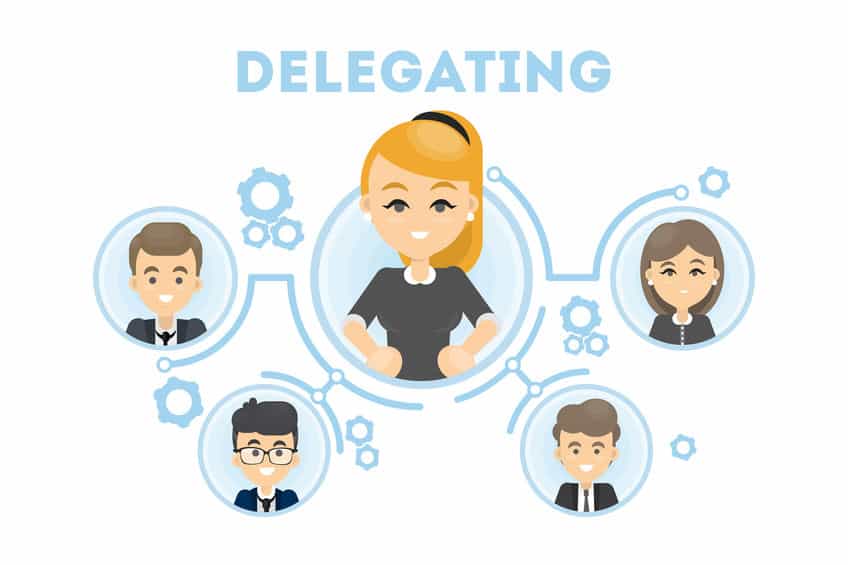
However, if a person does their difficult tasks first, it is simpler to postpone or delegate small tasks.
- People have a limited amount of energy in any given week to produce or perform.
After a 50-hour workweek, behavioral scientists have found that the work output of an employee workforce drops off a cliff. Once the number of hours passes 55 hours, work output is almost nil due to exhaustion.

The impact of this decline in being effective is that people who work 70 hours a week are achieving next to nothing in the extra fifteen hours they choose to work. Doing hard tasks first ensures there is enough physical and cognitive energy to complete these important tasks.
- It is more productive to consider whether you need to perform small tasks at all rather than do them first.
One of the greatest hacks of productivity is not to perform your to-do list more efficiently, but to shorten the overall number of tasks on it.

Shorter tasks lend themselves to evaluation easier as they are typically simpler than longer, more-involved tasks. Before doing any task, a two-step evaluation should be performed to determine if:
- The task is worth doing.
- If the task is worth doing, am I the best person to do it.
It is both easier to evaluate the validity of doing a task and whether you are the best person to do it with smaller tasks. This process alone can save you a significant amount of time and energy.
- The best measure of productivity is the quality of tasks performed, not quantity.
For example, performing ten different small tasks to organize your office is great. However, if these small tasks stop you from meeting a deadline on a major customer deliverable, they weren’t worth doing.
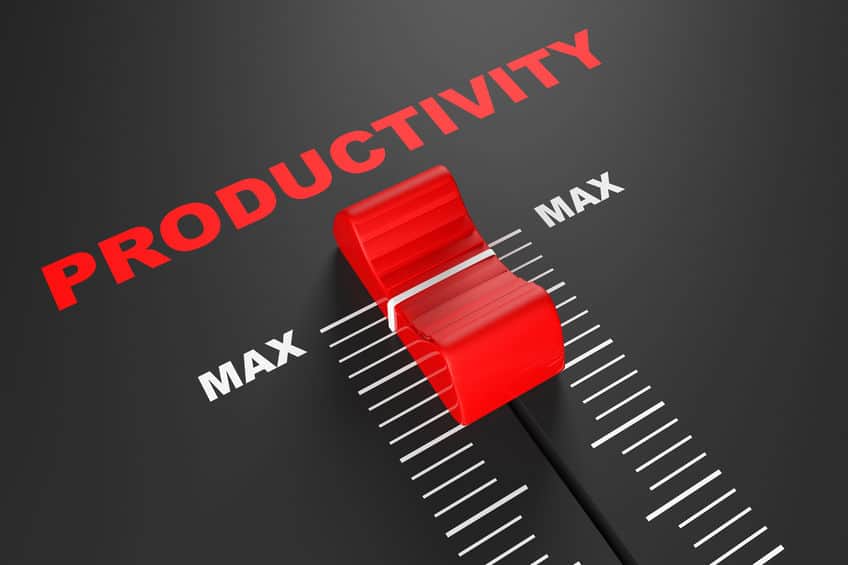
Taking the time to access the relative importance of each task as well as its estimated difficulty and duration is essential.
- People performing small tasks tend to multitask, and multitasking is not productive–it only feels productive.
Studies show that people who multitask are generally less productive (and less accurate in their work) than those who monotask.

The human brain is not good at multi-tasking. Our brains are tremendously powerful and great at many things but multi-tasking is not one of them. If fact, studies have linked heavy multi-tasking to poorer performance on simple memory tasks. Researchers have also seen in brain scans that the human brain struggles significantly with multitasking.
Even though it feels more productive, performing a batch of small tasks is typically not as productive as getting that hardest task out of the way first.
- Completing smaller tasks first is constructive procrastination, and destroys productivity.
If your goal is to complete important work consistently and you are procrastinating, you are not going to produce consistently.
Cutting through resistance to complete hard tasks first eliminates procrastination and increases your general efficiency.
Why Do People Choose To Work on Easy Tasks First?
The reason the “path of least resistance” exists as an idiom is because people generally have a tendency to procrastinate on difficult tasks and perform smaller tasks instead. Completing smaller tasks generates a feeling of productivity.
Behavioral scientists call this tendency “task completion bias.”
When you succumb to task completion bias, you feel more productive because they are getting a larger quantity of smaller tasks done. However, as these tasks have less intrinsic value, you end up being ultimately less productive.
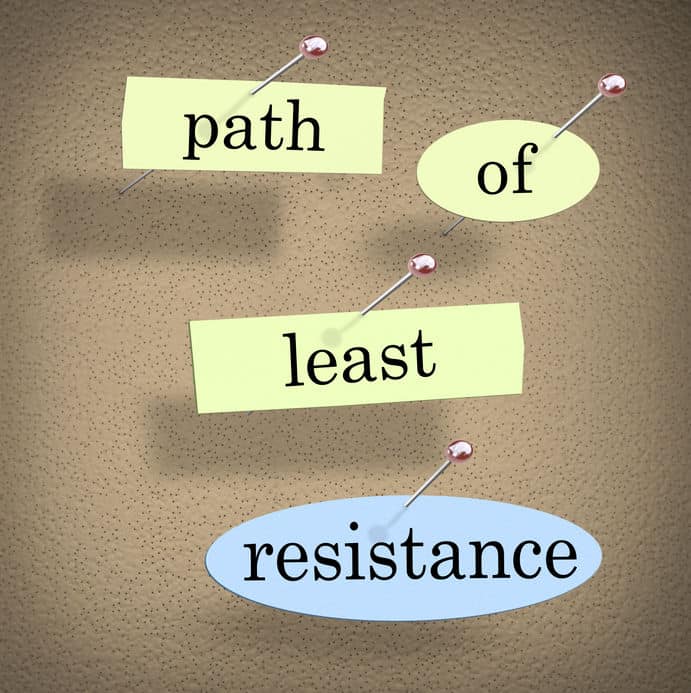
People who choose the path of least resistance are driven by the satisfaction derived from completing a task. However, this is dangerous to productivity as the satisfaction derived is not coupled appropriately to the level of importance of the task itself.
Why Do the Hard Thing First?
Productivity gurus like to quote Mark Twain’s famous advice towards productivity, which says to “eat the frog” or perform your hardest task right off the bat. This advice holds water in both behavioral research and anecdotal observation.
In their exploration of behavioral work analysis, scientists have found the following:

Most successful and productive workers consistently put their most difficult tasks first ahead of smaller tasks.
In productivity circles, this concept is usually called a Most Important Tasks (MIT) list.
Prioritization is essential in deciding what tasks to do first. While most people do what they feel like doing at the moment, it is better to complete the most important tasks first.
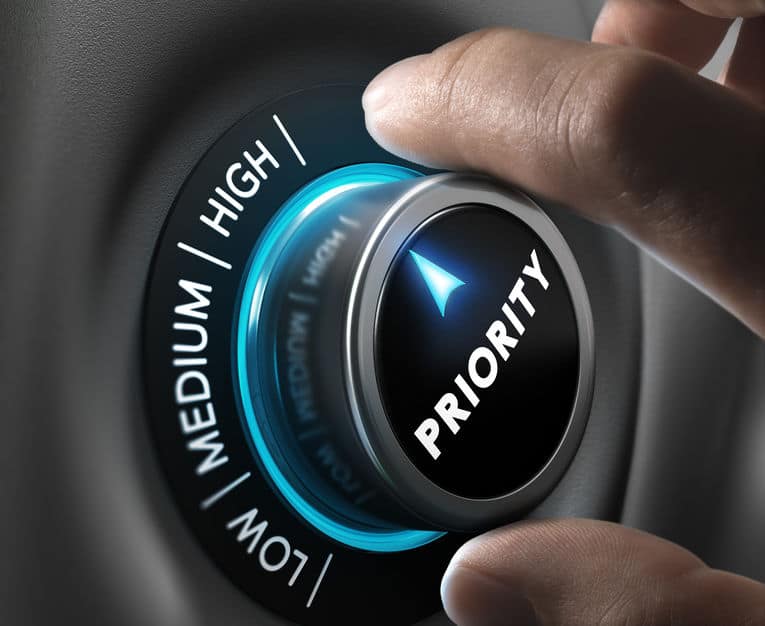
Here are some of the reasons why it is more productive to execute your most difficult tasks first:
- Doing the hardest task first means you are more likely to complete it.
The overwhelming majority of people will be less motivated at the end of their day than at the beginning of it due to decision fatigue and erosion of physical and mental energy.
Hard tasks should be performed first because that is when you have the most energy.
- Willpower has a ceiling and doesn’t last.
You use willpower throughout the day to force yourself to do everything from picking what you want for lunch to brushing your teeth before you leave for work. By the time you get home, your brain is exhausted from forcing you to act.
The limits of willpower are the reason why people who are trying to get into exercise should work out first thing in the morning.
The reality is fewer people have the willpower to go out and exercise after a full day of executive function performing other work.
- Getting the hardest task out of the way allows you to coast and creates a positive mood, which increases productivity.
Happy people get more things done, and few things make a person happier than knowing they no longer have to dread a hard task.

The relief you feel when you’ve gotten a high-value item checked off your to-do list sets the tone for the rest of your day. You are more likely to finish your other work in a good mood and avoid the emotional demoralization that comes with decision fatigue.
- Productivity follows the Pareto principle.
In the Pareto principle, the concept is that 80% of your results are the result of 20% of your work. In other words, it’s not the amount of time you spend working. Rather, it is about focusing on the tasks that matter, that move the needle.
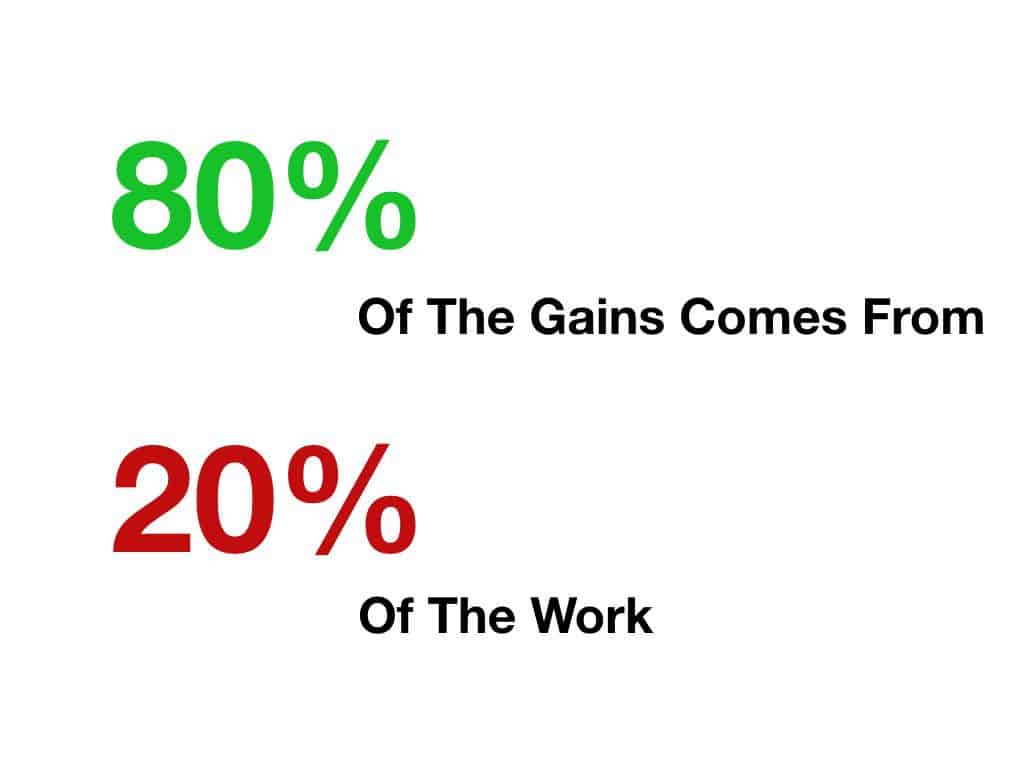
By this principle, which echoes across economic theory and management, if you only achieve the two hardest tasks on your to-do list, you’ve still produced more quality work than you would have if you had completed the other eight tasks combined.
Applying the Pareto principle to task management, tackling and completing only the most important tasks will have a superior impact on your productivity. In other words, you get more “bang for your buck” in completing larger, more important tasks than lesser, smaller tasks. This principle even applies if you do more smaller tasks. As mentioned earlier, measure your productivity based on the importance of task, not quantity of task. Tim Ferriss covered the benefits of the Pareto principle in his epic book The Four Hour Workweek. If you have not read this book yet, you owe it to yourself to do so.
- Putting off the hardest task is not just unproductive; it has the potential to create more work.
Harder work is work that is easier to screw up, and if you are tired at the end of the day, you’re more likely to make mistakes.
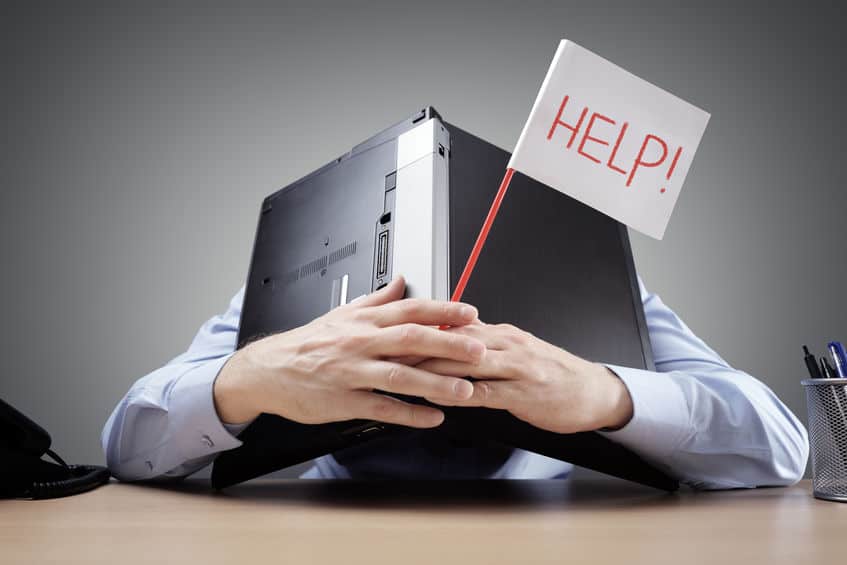
Having to fix mistakes just adds more work on top of the work you already had, so it’s the opposite of productivity. You’re growing your work rather than paring it down.
Tips and Tricks for Completing Your Hardest Work First
- Break difficult tasks into a batch of smaller tasks.
Most hard tasks can be broken down into smaller, simpler tasks. Breaking the complex task down into simpler tasks allows you to use task completion bias to your advantage. You are essentially tricking your brain into believing it is doing easy tasks and allows you to build momentum. A great way of breaking your tasks down into smaller tasks is mind-mapping. Mindmapping allows you to create a relational diagram of your task and its related subtasks. I wrote a blog post on mind-mapping that you can find at the link below:
- Prioritize your to-do list and pick the top hardest or high-quality tasks. Those are your most important things.
The heart of true productivity lies in knowing what it is you need to accomplish versus what you just think you need to do. This philosophy is how you determine task value, which determines how productive you are. If you can identify the top two or three most important tasks in your list, these tasks will hold the same productivity value as the rest of the list combined.
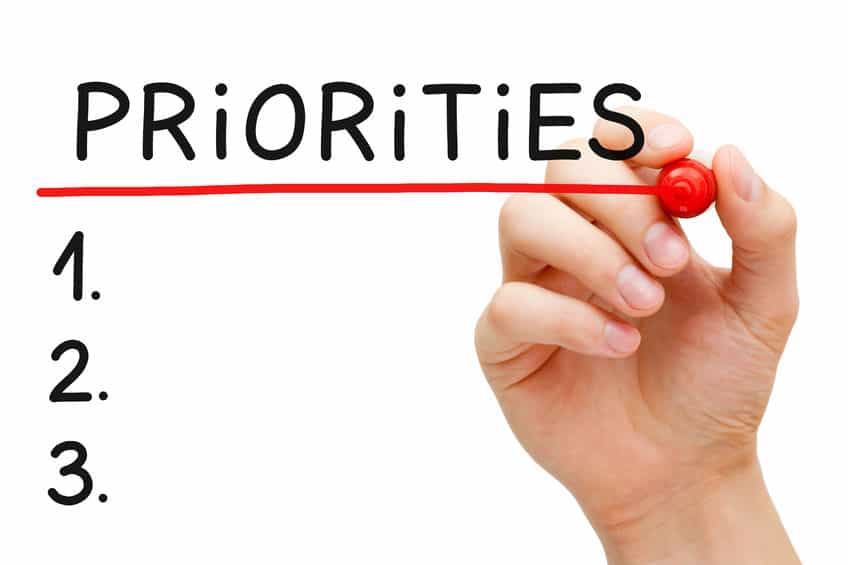
Even if you only do these two or three things and nothing else, you will have been extremely productive in terms of task value.
- Set up your difficult tasks ahead of time.
Because you’ll already be dreading the task, you don’t want to put any psychological barriers up between yourself and initiating the first steps to executing it.
If you need to write a paper, make sure you have all the research gathered beforehand. If you’re tackling a huge gardening project, make sure all the tools you need are ready to go first thing. If you’re trying to the gym, lay your gym clothes out the night before.
- Set a timer.
Often the anticipation of a difficult task is more difficult than the task itself. Set a timer for twenty minutes and tell yourself you must execute the task until the timer goes off. If the timer goes off, you will be free to take a five-minute break.
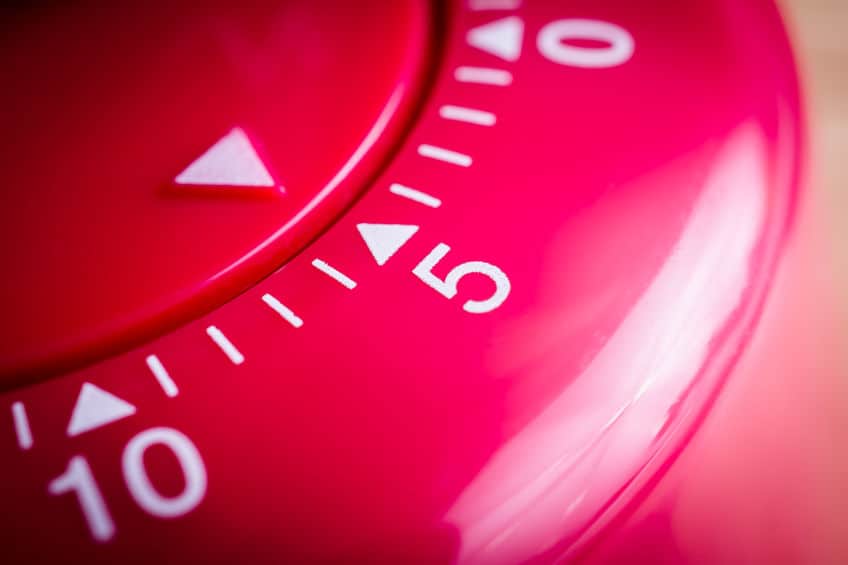
The Pomodoro Technique uses relatively short work bursts and breaks to help overcome the mental overhead of getting started. For more information on the Pomodoro Technique, check out our blog post (link below):
Link to Pomodoro Technique Blog Post
- Set your priority tasks the night before.
By doing so, this will put them at the forefront of your mind, and part of your brain will be considering them subconsciously while you sleep as well. Humans solve a lot of our problems while we’re sleeping.
Setting your priority tasks ahead of time takes advantage of theta brain waves, which allow you to solve creative problems more easily.
If you reflect on tasks in a theta state, you may be more likely to come up with creative answers to make the work less difficult. Doing this can increase your overall productivity through outside-the-box shortcuts.
- Make sure your difficult task is well-defined.
A lot of decision fatigue comes from deciding how to do something, rather than what to do. This indecision keeps difficult executive actions that are complicated from being started without great resistance.

If you are about to perform a difficult task, write the task down, and list all the things you need to do related to it. An abstract premise like “clean the house” can be daunting to the mind, but if you write fifty small household chores, you will feel less intimidated.
- Use the power of habit.
Make a point to consistently keep track of your most important tasks, and consistently do the hardest things you’ve prioritized first. Willpower is a lot like a muscle power–the more you use it, the larger reserve of it you have to draw from.

One way to do this is to write your most important tasks in a small journal every night, and mark them off the next day. By keeping a record, you can use ritual to reinforce your motivation and make you more productive overall through consistent performance.
- Stay away from social media and other distractions.
Doing the hard thing first thing means doing it first thing. Do not pass GO; do not collect two hundred dollars. Straight to eating the frog for you.
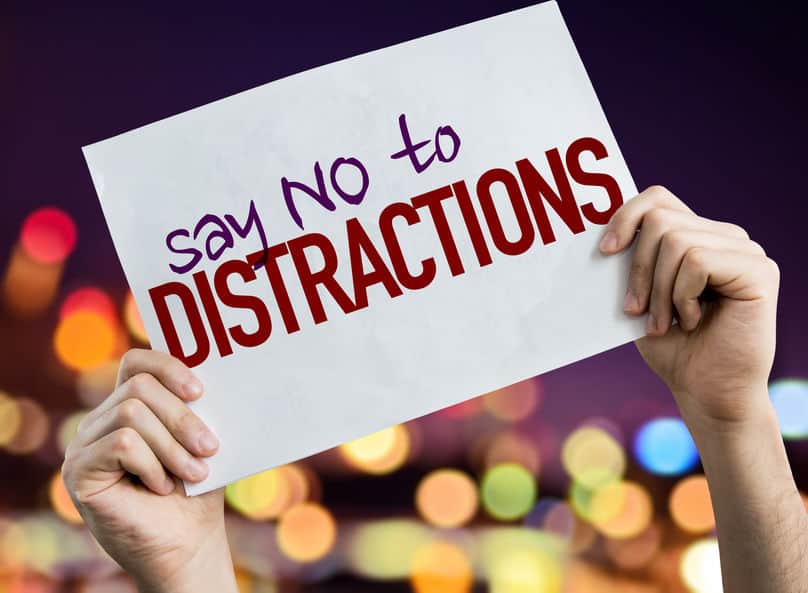
It is very easy to get drawn into browsing Facebook or Netflix, reading a blog, or reading the news rather than getting work done. Before you know it, you will have lost hours of productivity. A great way to block out distractions is to use an application like Focus to temporarily block you from accessing certain websites. Focus is a Mac application and is part of the great Setapp service. Setapp is a service that, for a very low monthly price, allows you to download and use over 150 Mac apps. For more information on Focus, click this link.
Do not execute any action before your hardest task for the best results, especially if it could be considered a leisure activity. Save that as a reward for when you complete your task. You’ll be working on completing it that much more quickly.
Final Thoughts
Productivity is not about how many tasks you get done. Rather, it is about getting valuable tasks done as efficiently as possible. Everything else is unimportant. Longer tasks are typically more important than smaller tasks.
Everybody has days where they are running around like a chicken with their head cut off, trying to do a dozen petty or inconsequential things at once. That feeling compounds when you realize you haven’t gotten anything valuable done. The key to true productivity isn’t the quantity of your work, but the quality of it.
Assessing quality (especially the quality and value of your own work) requires more forethought and preparation. Research shows that working more productively, as opposed to simply working more, leads to higher levels of objective success.
